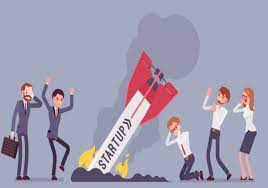When a start-up fails, one of the reasons is lack of capital resources. A lack of follow-up financing is a big contributor to failure, affecting about one-third of businesses. If you want to avoid being part of this statistic, here are four mistakes that most start-ups make in their first year. In addition, many entrepreneurs focus on the wrong metrics. Insufficient capital leads to a lack of focus, which can lead to missed opportunities.

Lack of cash is a common cause of startup failure, particularly for startups with little or no experience. Many of these businesses fail because they did not grow fast enough. By growing quickly, they bypass some of the biggest obstacles for startups – losing money, customers, personnel, and passion. Rapid growth early on is a good indicator of future success, particularly if the team knows how to rebound when things go wrong. Moreover, a diverse team will increase the odds of success.
The founders’ lack of experience and expertise. Many start-ups fail due to a lack of experience in the industry and management competence. A study found that 23 percent of failed startups were due to problems within the team. In addition, the lack of team cohesion can cause a business to fail. If the founders do not have experience in their industry, they will likely fail at figuring out a better solution.
Failing to consider users’ needs. Many start-ups are sunk by an inferior product, and ignore user needs. A lack of product-market fit is another common reason. While ignoring users’ needs can cause a startup to fail, it’s vital to identify the problems that are most relevant to the industry. As a result, companies that release products too late may miss a valuable window of opportunity.

Approximately 40% of startups fail within the first year. Another twenty-percent don’t make it past the first year. Fintech startups fail the most, with seventy percent not even making it to the fifth year. So, why do so many start-ups fail? If you want to avoid the same fate, you have to plan ahead and learn from mistakes made by others. For advice from Gloucester accountants, go to https://www.randall-payne.co.uk/services/accountancy/gloucester-accountants/
A crucial aspect of product development is conducting a competitive analysis and testing existing products. It’s important to understand how competing products and services solve the problem. A survey is a valuable tool to measure customer attitudes and behaviour. By gathering this information, entrepreneurs can better segment their potential market. Then, they can focus on engineering and marketing. If the start-up is unable to survive the first year, it’s time to abandon the idea.


